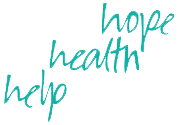IGFF provides independent advocacy, case management, referral and support to victims, families and communities who have experienced clergy, religious and lay abuse. Our specialised response recognises personal and faith beliefs, the particular needs of families and educational resources to support communities seeking to repair.
We acknowledge that institutional systems may also contribute to individual and communal trauma, so we assist people to access expert help from lawyers, mental health practitioners, pastoral and social carers and relevant police.
Currently, we support survivors through case management and advocacy to convey their abuse experiences to the Royal Commission in private and public hearings.
Hope and resilience are also sustained through participation in our Melbourne Victims’ Collective, a long term healing network for survivors, families, professionals and supporters. 
If you are in need of assistance or advice, please see our Support & Assistance page for a list of independent bodies that may be able to assist you.
If you are able to support our efforts, financially or otherwise, please visit our Can you Help? page.


